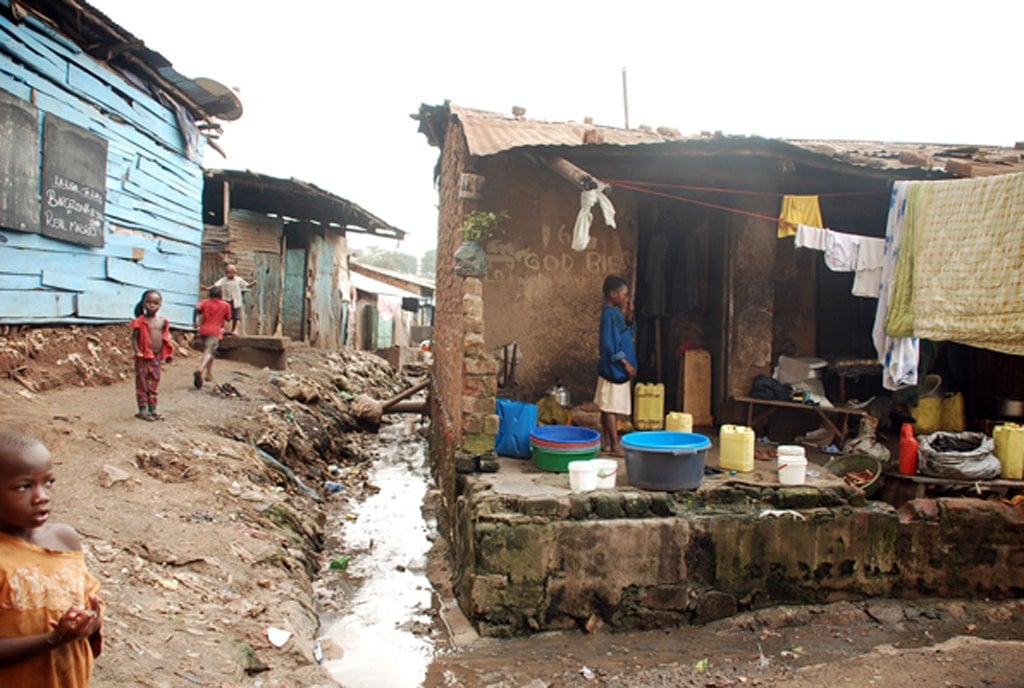Prime
18m Ugandans stuck in poverty - Ubos

Up to 18 million Ugandans struggle with multiple forms of poverty, higher than the 8.7 million which the government announced earlier after assessing income levels. PHOTO/ FILE
What you need to know:
This information is contained in the Multidimensional Poverty Index (MPI) report released by the Uganda Bureau of Statistics (Ubos) in Kampala yesterday.
Up to 18 million Ugandans struggle with multiple forms of poverty, higher than the 8.7 million which the government announced earlier after assessing income levels.
This information is contained in the Multidimensional Poverty Index (MPI) report released by the Uganda Bureau of Statistics (Ubos) in Kampala yesterday.
The Ubos statisticians said the MPI is the measure of the multiple deprivations that poor people face in the areas of education, health, and living standards and employment, unlike the Income Poverty Index, which only measures financial resources.
The dimensions, such as access to education, health and employment directly measures the performance of the government that is mandated to put in place such services. The people, who fall under multidimensional poverty line, are those experiencing shame, powerlessness and isolation, according to researchers.
While presenting the report, Mr Vincent Ssenono, a principal statistician at Ubos, said Karamoja Sub-region topped as the poorest with 85 percent of the 1.2 million people in the area experiencing multidimensional poverty.
Karamoja is followed by Acholi (64 percent), West Nile (59 percent), Lango (57 percent) and Teso (55.6 percent). Kigezi Sub-region is less poor than Teso, with a rate of 48 percent, followed by Bunyoro (45.7 percent), Tooro (45.5 percent), Busoga (45 percent), Ankole (42.6 percent), Bukedi (42 percent), and Elgon (40.5 percent).
Buganda North is slightly richer than Elgon with the rate of 31.5 percent, Buganda South is at 18 percent, while Kampala has the lowest level of multidimensional poverty at 0.4 percent.
Mr Ssenono said there were concerns that Ubos only measures income poverty and yet there are other forms of poverty. “The purpose of this report is to provide clear ways of designing programmes that directly target the real poor. The poor doesn’t not mean only the income poor, but the poor in all forms,” he said.
Implementation
Dr Chris Mukiza, the Ubos executive director, said the report will be very important in monitoring the implementation of government programmes.
“To make sure we are multidimensionally well off, you should not experience any of those deprivation such as access to clean water, electricity and education. You can tick all other boxes, but you are still using firewood, which causes deforestation and climate change and this in turn affects everyone else,” he said.
“You can have cows as is the case with many Karimojong, but what else? So we do not only look at assets, but also the level of schooling, the amount and quality of health services you receive,” he added.
Dr Mukiza said they expect policy makers to look at these findings critically as it undertakes the mid-term review of the National Development Plan Three (NDPIII).
“The remaining two years should be targeted to address these multidimensional poverty issues,” he said, adding that the report is based on analysis of the Uganda National Household Survey of 2019/2020 and compared with the Survey of 2016/2017.
.Mr Richard Ssewakiryanga, a senior research fellow at the Centre for Basic Research, said the people in this category of multidimensional poverty are those who grapple with shame, powerlessness and isolation. “Having a household asset, which is sometimes taken as improved quality of living, may not tell us the real situation in the household. Some of them may acquire motorcycles through loans, but then they cannot pay back and the stress levels are very high among them,” he said.
Mr Amos Lugoloobi, the Minister of State in-charge of Planning at the Finance ministry, said the report will inform the implementation of the Parish Development Model, which has been halted until Ubos identifies the right beneficiaries.
“This MPI helps us to understand poverty in a more elaborate manner. It helps to understand the status of the households. We are now able to understand that for PDM to be successful, we have to make sure people have access to roads, electricity and industry for better jobs and productivity,” he said. “There are various shocks in this country. The shocks are coming from climate change, the quality of the soil [that many Ugandans rely on for agriculture], the Covid-19 pandemic, among others,” Mr Lugoloobi said.
“That is why you are seeing some regions being more impaired than others because of those shocks, but we still need to do more research to understand this for appropriate intervention,” he added.
Ubos came up with the MPI report with the support of United Nations Development Programme (UNDP), Economic Policy Research Centre and other partners.
Ms Elsie Attafuah, the UNDP resident representative, said the “bold” report will accelerate the fight against poverty.
“We need to focus on industrialisation to fight poverty. Covid-19 has taught us to build better and create opportunities to address youth unemployment and other vulnerable groups. We should increase trade among African countries,” she said.
“Africa trades 16.6 percent among itself and there is a lot more it can do. We should also invest in the tourism sector, which is essential for accelerating rural development,” she added.




